The playwright’s love for her characters is so foundational—as is their love for each other—it can take every kind of lump. Quiara’s people are tough, complicated family, beautiful and broken, always dancing on, even on raw bloody feet. “I know things got ugly for a while but family is family,” says Ruby, who was eleven when Daphne found her behind a dumpster, studded with glass from the third-floor window she ran through when cops came to her door. Ruby knows ugly. She also knows the love of family, like her adoptive mother Daphne, who nails the eleven-year-old’s shoe to her bar and keeps it there, year after year, the invitation—and promise—to stay.
Music stands in for love, a metonym. They are both connectors, and Quiara hones in on connectors. She looks in the streets, she looks in the garden, she looks in the kitchen. What connects is good, whether it’s the Internet chat room for recovering crack addicts in Water by the Spoonful or the protests in Tahir Square in The Happiest Song Plays Last. It could simply be a pot of soup, like the ones from which Yaz in Happiest Song feeds a homeless friend named Lefty and just about everyone else in the neighborhood.
LEFTY
It smells like chicken and macaroni.
YAZ
(Pointing to the stove.) That pot’s yours. I knew you were coming today. Eat what you want, take the rest with you.
LEFTY
Look at those pots, mom. Stacked up like Legos.
YAZ
(Pointing to a pot.) That one is for Dona Manza’s grandkids. She has to work double shifts all week, no time to cook. (Pointing to another one.) Pasteles for the blind woman on the corner. Her home care person just got deported. (Pointing to another pot.) Sopita for Miguelito’s boy in the hospital.
JOAQUIN
They still got that kid on all those machines?
YAZ
Last time I brought him soup his IV line was clogged all the way back into the bag. There wasn’t a nurse on the entire floor. Go to that hospital, you just get sicker.
JOAQUIN
Verdad.
YAZ
(Back to Lefty, pointing.) These four pots are for the Three Kings party. Friday night. You’re coming, right?
Lefty nods, serves himself. Yaz returns to her foot rub.
JOAQUIN
Do you have to leave your doors unlocked?
YAZ
Open door, open stove.
People must feed one another. It’s part of how we love. If we don’t the results are tragic; we will literally die. In Water By The Spoonful, the second part of Quiara’s Elliot trilogy and winner of the Pulitzer Prize in Drama, the twenty-four-year-old Elliot confronts his birth mother Odessa, a recovering crack addict, who has become a kind of online savior for other addicts.
ELLIOT
My sister and I had the stomach flu, right? For a whole day we couldn’t keep nothing down.
ODESSA
Three days…You were vomiting three days straight.
ELLIOT
Medicine, juice, anything we ate, it would come right back up. Your coworker here took us to Children’s Hospital.
ODESSA
Jefferson.
ELLIOT
It was wall to wall packed. Every kid in Philly had this bug. ER’s were turning kids away. They gave us a flier about stomach flu and sent us home. Bright blue paper. It said give your kids a spoonful of water every five minutes.
ODESSA
A teaspoon.
ELLIOT
A small enough amount that they can keep it down. Five minutes. Spoon. Five minutes. Spoon. I remember thinking, wow, this is it. Family time. Quality time. Just the three of us. Because it was gently, the way you said, “Open up.” I opened my mouth, you put that little spoon of water into my mouth. That little bit of relief. And then I remember being like, “Wow, I love you, mom. My moms is alright.” Five minutes. Spoon. Five minutes. Spoon. But you couldn’t stick to something simple like that. You had to have your thing. You couldn’t sit still like that. That’s where I stop remembering.
ODESSA
I left.
ELLIOT
A Department of Human Services report. That’s my memory. Six hours later a neighbor kicks in the door. Me and my sister are lying in a pile of laundry. My shorts was all messed up. And what I really don’t remember is my sister. Quote. Female infant, approximately two years, pamper and tear ducts dry, likely cause of death, dehydration. Cuz when you dehydrate you can’t form a single, lone tear.
The difference between life and death, between love and neglect, between connection and separation is so small—a teaspoon of water, a bouquet of flowers, a couch to sleep on, a pot of food, a letter home from war, a musical instrument, a pair of golden high heel shoes or a sneaker, a story, a passport. “Love calls us to the things of this world,” the poet Richard Wilbur writes, in a poem that describes waking to a cry of pulleys, a clothesline outside the window and in the moment after sleep, mistaking sheets hung out to dry for angels. Quiara is a writer of lucid, hospitable attention, and love calls her, too, to the things of this world, first in her North Philadelphia neighborhood or barrio, where, as a granddaughter of Puerto Rico, she was a sponge of the familiar—sights, sounds, smells of cooking. From there her gaze travels in ever-expanding circles: to Sapporo, Japan; Azraq, Jordan; Egypt and Iraq. The world things she awakens us to offer a chance for care, legacy, grace, forgiveness, communion—for witness.
In The Happiest Song Plays Last, Elliot, now in his late twenties, meets Ali on a film set in Jordan. He discovers that Ali is, in fact, an Iraqi refugee. Remember, Elliot fought in Iraq—and killed there.
ELLIOT
You got anyone still there?
ALI
My mother and father.
ELLIOT
You got anyone young there?
ALI
My cousin Nasser. Very short and fat man. Always he wants to play basketball but he is short and wide like bosta.
ELLIOT
Bus?
ALI
Good Arabic my brother. He stays in Iraq, to rebuild. Iraqi National Basketball Association. He tries to create this. Smart man.
ELLIOT
I got something. If you could send something to him. Maybe he could track down an address and deliver it?
Elliot pulls a passport from his pocket, gives it to Ali.
ALI
This is Iraqi passport you know?
Silence.
This is Iraqi person you know?
Silence.
ELLIOT
He’s my first.
Silence.
ALI
Why you bring this today?
ELLIOT
Every day. It lives in my pocket. Every day since 2003 it’s in my pocket.
Silence.
He wrote his address here. Or some address, I’m guessing it’s his. If maybe your cousin Nasser could go there. I know it’s a big country. But if you could send it to him and maybe he could go there and give it back to the family. Give it to his wife and son.
ALI
How you know he has wife and son?
ELLIOT
After I…I seen them…
Elliot pulls money out of his pocket, hands it to Ali.
How much does it cost to send a package to Iraq? Or actually, to send a messenger? I want to send money so Nasser can get a driver and go to this address.
ALI
Put this money away.
ELLIOT
For you to send the package. You gotta send it secure, it has to make it there.
ALI
You pay, I take you to Petra. You pay, I take you to Dead Sea. This, you do not pay.
Elliot puts the money back in his pocket.
[…]
ALI
How you know I don’t put this in trash can?
Silence. Ali puts the passport in his pocket.
No forgive. I cannot forgive. But you know real who I am. I know real who you are. Witness for each other.
Having started with music, or with love, let’s end with heartbreak, which is where Quiara ends her recent keynote/essay. As I read it, her heartbreak begins in wounds shared by many playwrights—the terror of writing, the lifelong stress and fear that accompany production and opening, responsibility for the livelihoods of others, the harm of critical reduction and misreading. These painful common causes, though, reside for Quiara Hudes, as for many artists of color, in the context of a more extreme psychic violence: that of writing within, performing for, and being reflected by a dominant culture, a dominant audience.
“How will the audience view my Latinx stories,” she asks, “and if they are mostly white does that mean my cast is performing race, and doesn’t that injure our pride, our self-determination? How will it feel to go out onstage and once again not be afforded the luxury of neutrality?” No matter how much outreach she—or again, any artist of color—does in her community, only a drop of the audience will reflect the culture she writes from and for. In other words, she can never, in theatres of a size befitting her professional eminence, have a conversation with the people she’s talking to.
In a 1967 essay entitled “American Theater: For Whites Only?” that led to the founding of the Negro Ensemble Company, Douglas Turner Ward voiced “a screaming need” for “a sufficient audience of other Negros,” not as the only audience, but as the “primary audience, the first persons of [the playwright’s] address.” How liberating it would be, Ward imagined, to speak without having to explain, teach, over-illustrate, or literalize fantasy for white audiences who, well-intentioned though they might be, cannot help but be blinkered on matters of race and culture, on worlds they read as “other.”
Now, fifty years later, a Tony- and Pulitzer-winning playwright cries out from in front of the funnyhouse mirror of whiteness, wealth, and the accepted aesthetics of decades of American playwriting (or maybe centuries of white Western drama)—a mirror reflecting back the images of her heart and mind distorted. “It is discombobulating and even humiliating to write Latinx characters who will be seen my mostly white audiences. It feels like either their brownness or their humanity is the primary performance…” This humiliation is made more severe because it “replicates many of the old structures and dynamics” in Philadelphia that led Quiara to write in the first place.

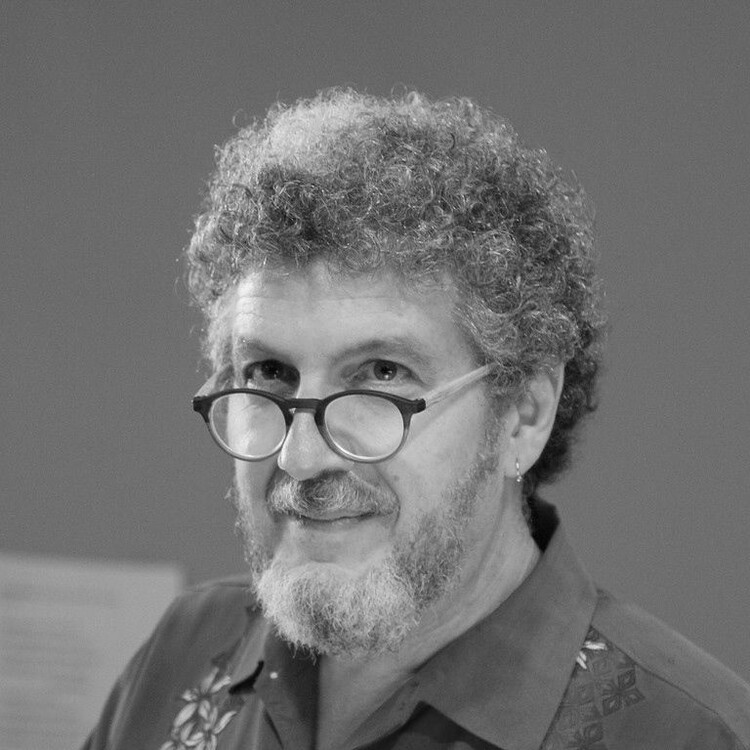
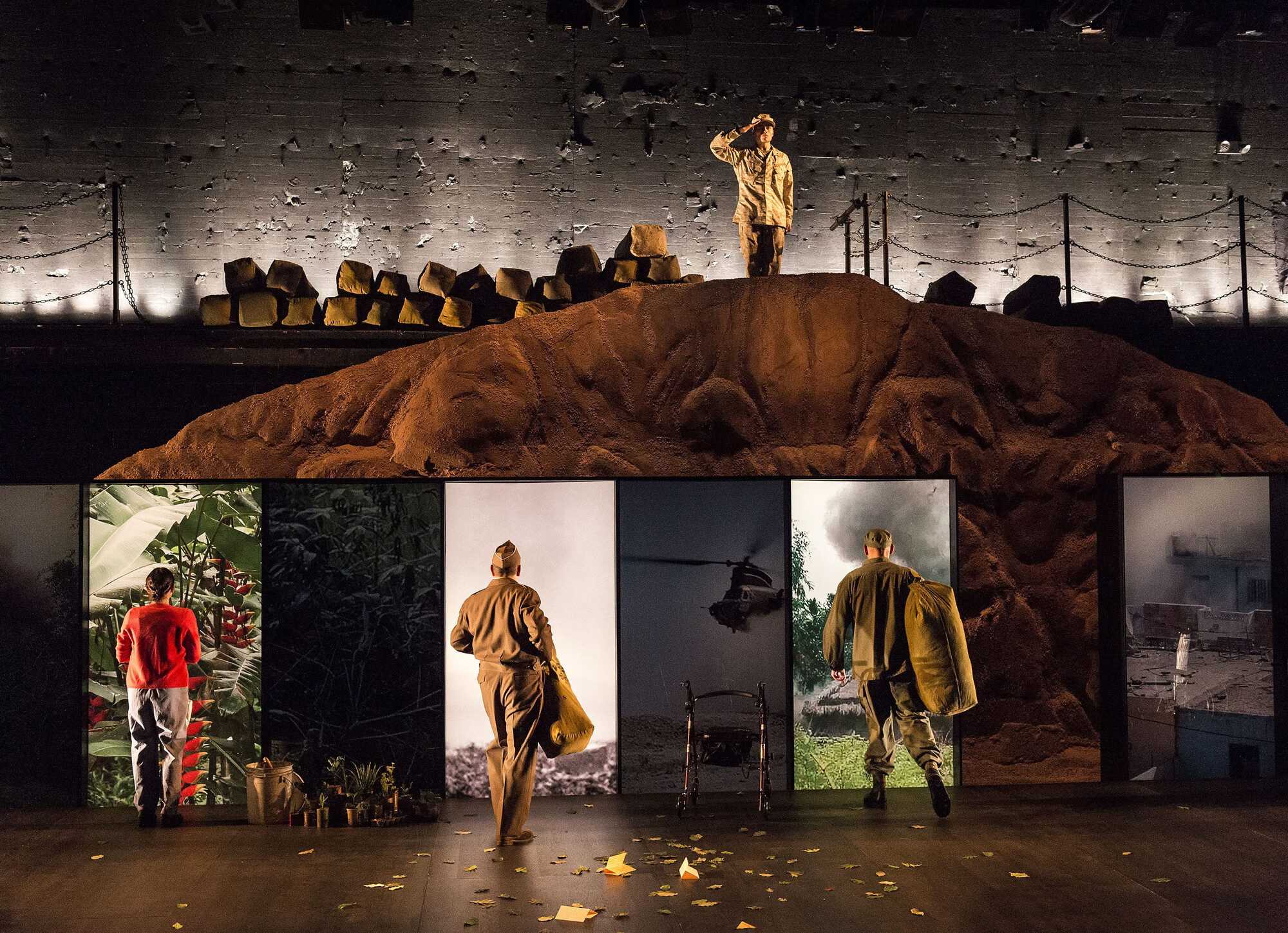
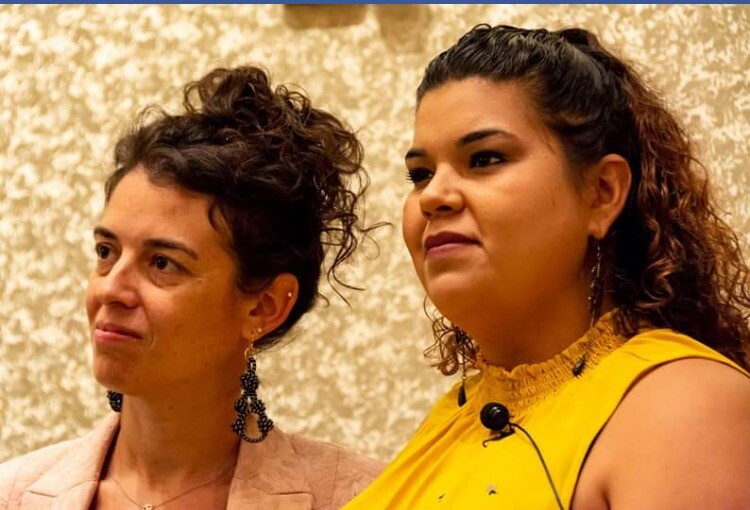
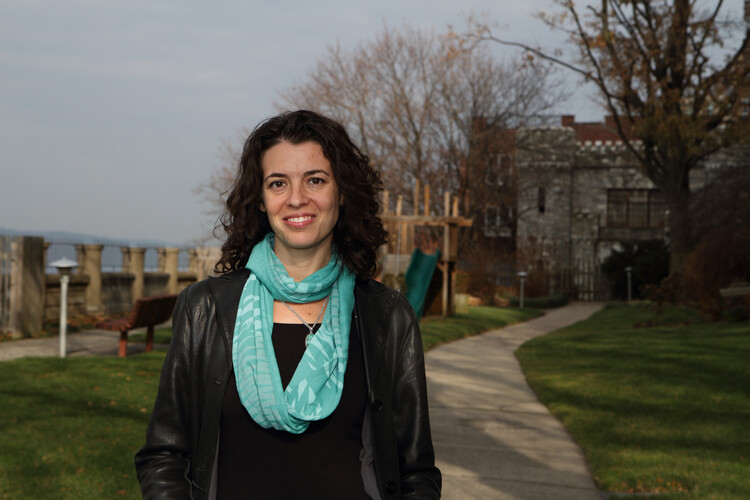
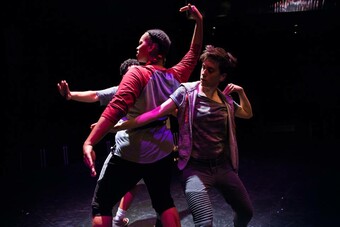

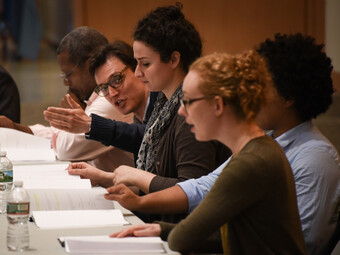

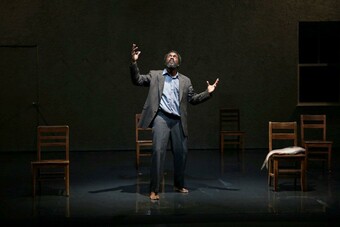

Comments
The article is just the start of the conversation—we want to know what you think about this subject, too! HowlRound is a space for knowledge-sharing, and we welcome spirited, thoughtful, and on-topic dialogue. Find our full comments policy here